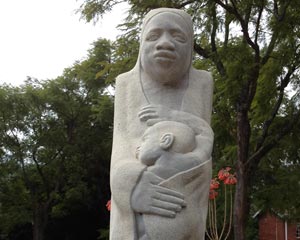
If we are truly to be at the service of justice, then it is important to recognise that the first victim of abortion is the unborn child whose life has been deliberately ended.
Report by Catholic Bishops
Taking the life of a child in the womb is as unjust as taking the life of any human being.
The Catholic Church speaks out against abortion because it acknowledges the human rights and dignity of all people.
To wilfully destroy life is an unspeakable crime against an innocent and defenceless gift from God.
The church’s defence of life is based on the intrinsic value and inalienable rights that each individual has. Because we are made in the image and likeness of God, this gives to each life a divine property. Human life is thus untouchable and those who destroy this gift are attacking the creator Himself.
From the first to the last, the message of scripture is unambiguous, the very foundation of human dignity and human rights is to be found in God’s creative plan and purpose. The Catholic Church thus has a duty to incarnate this message in every culture and in every constitutional and social system.
The logic of abortion begins in the mentality that underpins the concept of contraception. Abortion becomes yet another form of contraception and a means of disposing of what is considered inconvenient and challenging.
- Chamisa under fire over US$120K donation
- Mavhunga puts DeMbare into Chibuku quarterfinals
- Pension funds bet on Cabora Bassa oilfields
- Councils defy govt fire tender directive
Keep Reading
This naturally leads to a move to dispense with the sick, disabled and the elderly. With the willing complicity of many governments throughout the world, colossal means have been used against people, at the dawn of their life or when thought to be a burden on national medical resources. It is for this reason that the Catholic Church has consistently stood against abortion because it degrades human rights and dignity.
What the church teaches is consistent with the whole Christian teaching about the rights of the innocent to live.
Without it, no other human rights are secure. Long before science was able to reveal the stages of development within the womb, the Catholic Church had regarded the unborn at all stages of pregnancy as possessed of a distinct new life, which no one could willingly choose to destroy.
As our understanding increased, the church began to defend life from the moment of conception. From the moment the father fertilises a living cell from the mother “the adventure of a human life begins”. Each new life is the life not of a potential human being, but of a human being with potential. The moment of conception begins the life story of each person and so it is to be protected. No human law can thus legislate for the deliberate killing of a human being and “there is no obligation in conscience to obey such laws”.
If we speak of human rights then the child in the womb has rights no matter whether we choose to call this child a neonate (newly born), a foetus or embryo (child within the womb).
The Catholic church is clear — human rights are not arbitrary and there should be no interference with the natural development of the child in its mother’s womb. Not even the parents have this right since the child is an independent life.
We acknowledge that people find themselves facing difficult and confusing situations. Young girls find themselves used sexually by older youths or men and deserted when found to be pregnant. There are cases of rape and occasions when the pregnancy could injure the mothers’ health. The pressure to terminate can be great, but we cannot use murder of the innocent as a solution to an unwanted problem.
Pre-abortion counselling, practical guidance and medical help during pregnancy, a safe place to deliver and the appropriate adoption advice are all measures that we, as the Catholic Church, ought to see as our contribution to eradicate a culture of death.
Adapted from Zimbabwe Catholic Bishops’ Conference pastoral letter











